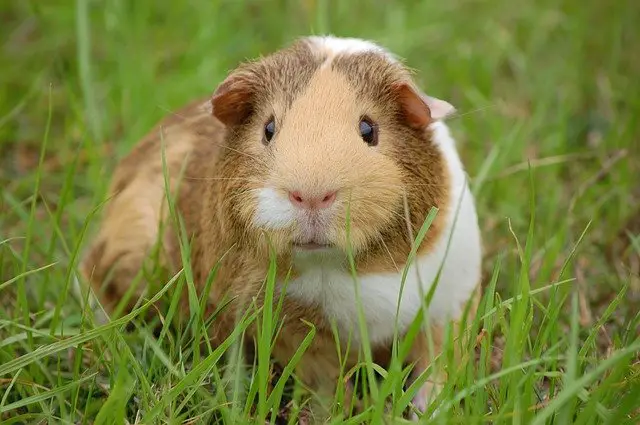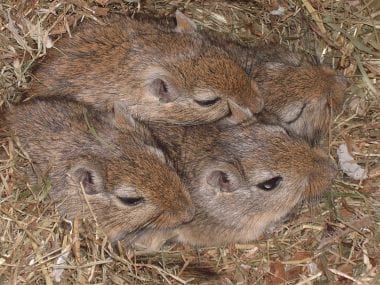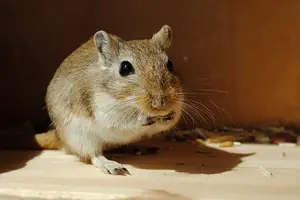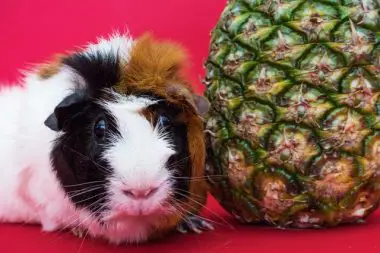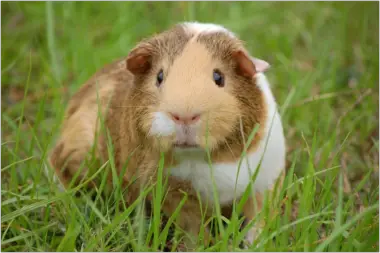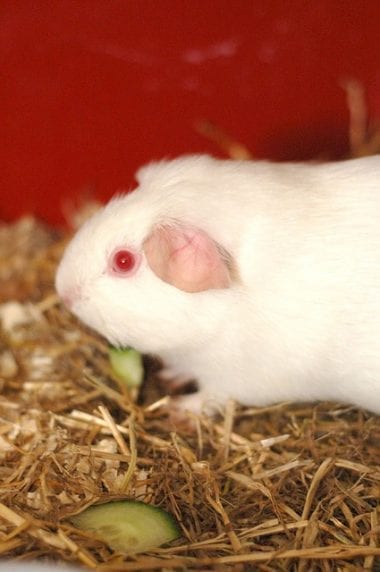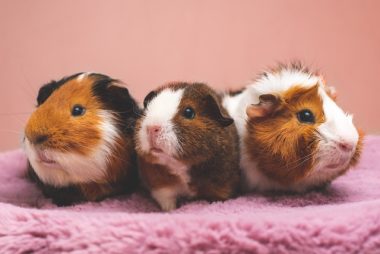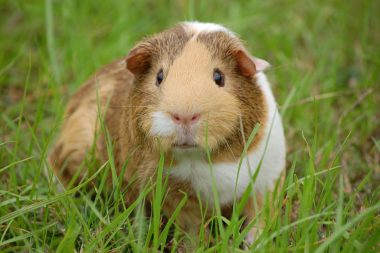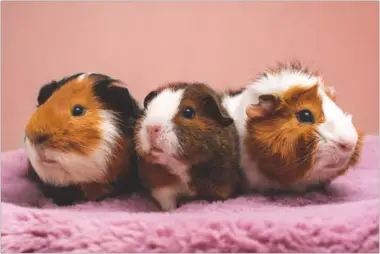Table of Contents Hide
A guinea pig falls under the rat category and is a commonly domesticated pet. It is also known as the Caviidae/Cavy. They can measure up to twenty-five centimetres in length, and weigh between seven hundred and twelve hundred grams. They are considered to grow in pairs or more. The gentle temperament and tiny size render them the best complement to every household. Cavies come from the South American continent and are tamed relatives of a common animal. This is as far as evidence suggests, and thus they can not be encountered in the natural environment.
What is the average life-span of a Guinea Pig?
Guinea pigs have a life-span of 4 to 8 years on average, so their health is a lengthy undertaking. While sows are the female ones, males are referred to as boars. Guinea pigs like companions of their species and may be held in bands of the same gender or as couples. Do note: the males must be desexed to prevent unwanted kids if you’ve been thinking about keeping a female and a male together. Calling around and locating a vet that knows about neutering tiny animals such as guinea pigs is a smart idea in this regard.
The life-span of guinea pigs ranges between four and eight years on average. We must bear in mind, though, that its survival depends significantly on how safe and comfortable the cavy is, much like any human being. Giving it the proper care and vitamins would do well for a longer time and keep the cavy strong.
The untimely death of a guinea pig can be caused by inadequate diet, heat exhaustion, ringworm, worms and infections. While extremely rare, a guinea pig’s highest survival period is fifteen years. As far as tiny house animals go though, these have a reasonably long life-span.
To raise the total life-span of guinea pigs, there are many things one could do. These would guarantee your tiny pet can live a long and healthy life, from checking it doesn’t get too tired to giving it adequate nutrition and resources. They are as follows:
The Living Space must be Sufficient
To survive, animals require a good amount of room, and guinea pigs are no exception. A bare minimum of ten square feet of a living room for 2 of them must be planned and maintained. Not only can their territories be granted enough freedom, but it also allows them ample space to workout. Recreation can save animals from struggling due to being overweight, retention of gas and unnecessary bloating. Some caregivers of pets go the additional distance and allow them entire spaces.
However, cages with strong steel wire surfaces are a great alternative for simplifying stuff and are completely appropriate. To keep the animal from hurting itself, make sure to cover the cages with newspapers or wood off cuts. The more guinea pigs you plan to train, the bigger the cage will have to be. Enough room to move about would keep them from attacking or harming each other.
Raising them in Pairs
Guinea Pigs do well as social animals, residing in groups of 2 or even more. Holding cavies of similar gender together is suggested. Make sure at least one is neutered if you intend to hold on to one or both. One reasoning for this is that this would not allow the female to get pregnant. While breeding them is normal practice, you must bear in mind that throughout conception, childbirth or post-pregnancy, at most 1 in 5 females will die prematurely. While being in pairs also assists in the circulatory system and obesity reduction, it can also facilitate fitness and recreation.
Maintaining Good Hygiene
If you don’t disinfect the cage of your cavy daily, you can allow fungus and microbes to thrive. A common pathogen acquired by these species is Bumblefoot. It is an allergic response that impacts the paws of animals that remain in containers for a prolonged period which have not been washed. They appear to leap into their feces and urine, messing these up against their bed and meals, since they are usually dirty animals. You may also choose to wash your animal once per 3 months, in addition to washing the cage daily.
It’ll hate or love it, based on your animal. Arrange a sheet, with shampoo for rabbits or guinea pigs, a blow-dryer and a comb whichever way. Flush a bath with warming water and keep the animal carefully under the stream of flowing water. Do not put water on the eyes or head. Operate the soap into its hair after washing its torso. If you have soaked the whole body, wash it clean. Cover the guinea pig in a blanket and let it take in as much water as possible. To iron out the wrinkles and swirls, end by blowing the fur dry and grooming it. You may also use a wet cloth as an option and rinse it with hot water for the same purpose.
Try to avoid sudden changes in Temperature
Guinea pigs are very fragile animals and do not respond well to sudden variations in temperature. They are also vulnerable to sunlight and sun strokes, so do not position your pet’s cage anywhere which gets direct sunlight. Instead, go for partial sunshine or a sunny place that gets some early daylight often. As cavies are vulnerable to getting bacterial diseases, you must also guarantee that the room of your pet is open to airflow.
Please ensure that the environment in which the enclosure is positioned receives a safe low amount of heat and moisture. It is a terrible idea to put the pet in the bathroom or laundry room. Since studies have shown that enclosed cavities appear to survive longer than any of those living outdoors, these should be kept indoors.
Ensure it gets the proper Nutrients
You are accountable for the welfare of those in your possession as the owner of a pet. To survive a long and stable life, it should be your key priority to ensure that your pet receives adequate nutrients. One of the most significant actions you may do to ensure that your guinea pig’s life-span improves is to give your pet a good diet. The cornerstones of a healthy diet for guinea pigs are fresh and clean water along with nutritious food.
A diet high in phosphate, magnesium, calcium, vitamins D, E, A, C, and potassium must be served to the guinea pig. Offer them high-quality fruits and vegetables, pellets and grass hay as guinea pigs are vegetarians. Leafy vegetables, apples, celery and cabbage are some excellent examples. You may feed them more veggies than fruits because the latter includes high fructose levels. Those tend to be very dangerous for cavies when not managed appropriately.

How can you acquire a Guinea Pig?
Pet charitable organizations such as the Blue Cross provide guinea pigs who require decent homes. You may instead, approach a respectable breeder. If you are looking for babies, they must be at least 6 weeks old. When you purchase from a pet store, please ensure all the pets are housed in groups of the same gender. The workers will teach you the division among females and males.
Conclusion:
Guinea pigs are polite and, after they have gotten used to their new environment, most are pleased to be treated. Using both hands at all times is a must while picking up one of them. With the thumbs tucked behind its neck and fingertips curled around the chest, put one hand over their backs. Without pressing, keep close enough to be safe and place the other palm under the haunches for comfort. Keep your body next to the animal. You may have a seat and place them on your lap so that they feel happy.
For adults or adolescents, guinea pigs may be fine pets. As guinea pigs are busy throughout the day, just seeing them will enable you to have lots of fun with them.
They talk openly and there are various meanings for different sounds. A cooing noise provides reassurance, while an alarm may be a squeak: an indication that the cavy is afraid or that dinner is arriving! When left by itself in a hutch in the backyard, they are miserable since they require companions.
Guinea pigs are friendly creatures that make excellent pets for children, but you have to worry about the possibility that they have a longer life-span. They will survive as long as a minimum of 7 years, meaning they can surpass the desires of a kid. That is why it is essential that the elders in the family share the enthusiasm of the kids in the guinea pig. Any parent has to be responsible for making sure that the kids provide the proper care and treatment to the pet, as is the case with all small pets. Overall, to ensure that your guinea pig has a long life-span, give it the love that it deserves as you bring it home. Make sure to follow all the points mentioned in this article.
